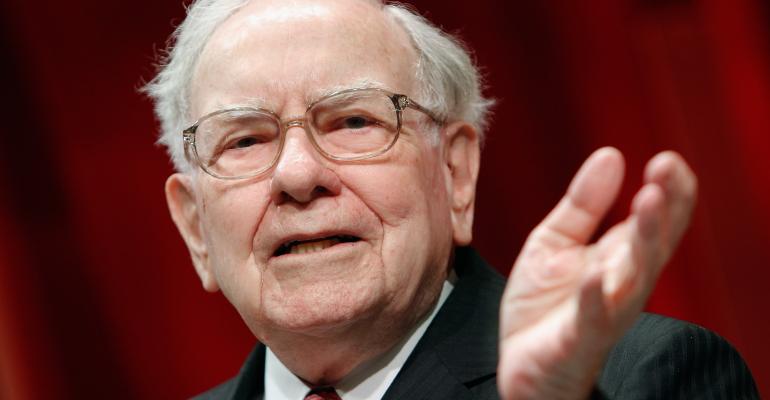Warren Buffett’s holding in Wells Fargo & Co. is approaching 10 percent, a level at which he’d have to pass a Federal Reserve review to keep building his stake.
The billionaire oversaw about 506 million shares, or 9.9 percent, of the bank as of Dec. 31, according to regulatory filings. Most of the stock was held by subsidiaries of his Berkshire Hathaway Inc. The ratio has steadily climbed from 6.7 percent at the end of 2009 because of Buffett’s stock purchases and the lender’s buybacks.
Investors typically have to tell the Fed and the public before acquiring 10 percent ownership in a bank. It’s one of the requirements that regulators use to track and review who can control the nation’s lenders. The U.S. has long limited the ties between non-financial companies and banks.
Still, there are pledges that investors can make to show that they don’t plan to influence a bank or its management. In the 1990s, for instance, Buffett increased his holding in American Express Co. to more than 10 percent. At the time, he agreed to follow the credit-card lender’s recommendations in voting company shares. Berkshire made a similar commitment to the Federal Reserve, according to the lender’s proxy filing. Berkshire’s AmEx stake was about 16 percent as of Dec. 31.
Darren Gersh, a spokesman for the Fed, and Wells Fargo’s Mary Eshet declined to comment. Buffett didn’t respond to a request for comment.
Share Buybacks
His Wells Fargo stake is valued at more than $24 billion based on the bank’s $48.90 closing price Thursday. Almost all the shares were accumulated at an average price of $25.46 according to Omaha, Nebraska-based Berkshire’s annual report.
Buffett is a long-time investor in the bank, and his holding got close to the 10 percent threshold in 2007. But his ownership share fell in the next two years, even as he added more stock, because San Francisco-based Wells Fargo issued billions of dollars in equity to help fund the Wachovia Corp. acquisition and then to rebuild capital after a U.S. bailout in the financial crisis. The bank accelerated buybacks in 2011 after markets rebounded.
Berkshire also owns retailers, manufacturers, electric utilities and BNSF, one of the largest U.S. railroads.




